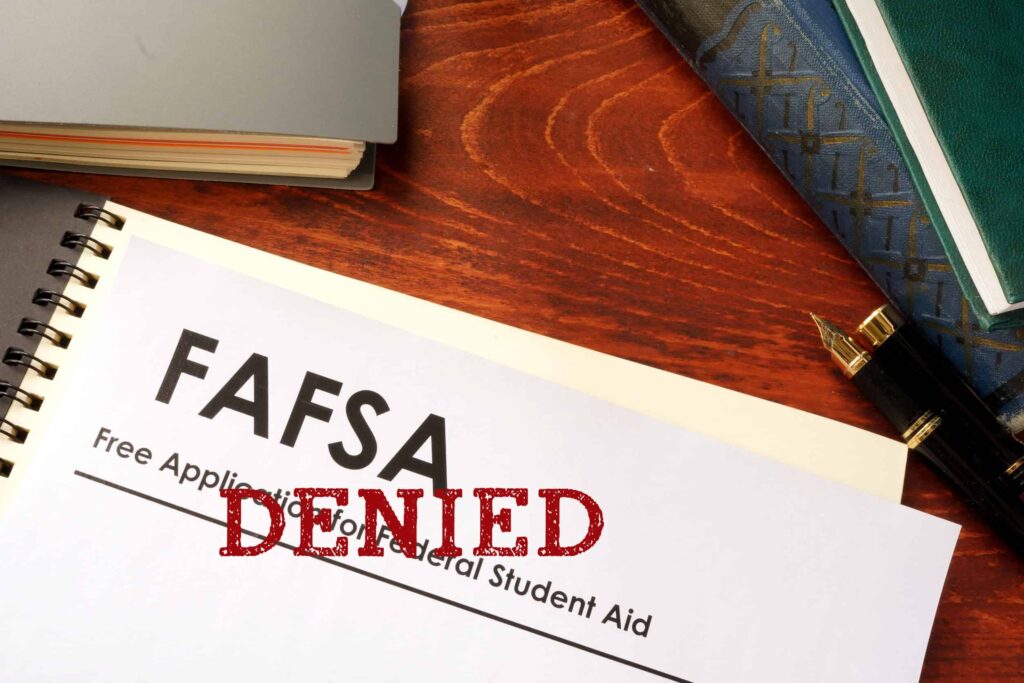Defending Against Police Informant Testimony
April 18, 2025

DUI in Colorado: What are the Most Frequently Asked Questions?
Protective Orders, Restraining Orders – What’s the Difference in CO?
Posted by: Jacob E. Martinez
Category: Uncategorized
Senior year of high school is an exciting time for most Colorado students. One chapter is closing, and another chapter is opening…but where will that next chapter take place? University of Colorado? A private college across the country?
Students without a criminal record take this excitement for granted. If you have a drug charge on your record, college application season can feel overwhelming. Will colleges unearth your past mistakes? Will they reject you immediately?
Luckily, there are ways for students with a criminal record to attend college. Use this guide to help you move forward with your life and get the education of your dreams.
Don’t assume that the college of your dreams doesn’t care about criminal records. Six in ten schools consider criminal history when they are looking at a student’s application.
Luckily, drug crimes are not the most concerning. Sexual assault and other violent crimes raise a red flag much faster than a conviction for something minor like possessing marijuana.
So don’t let a drug conviction deter you from applying to college either. There are many students who have received acceptance letters from their dream school, even after making a few mistakes.
We do recommend searching for your name online to see if your criminal record or stories about your arrest have made headlines. These are more likely to affect your acceptance than records that are harder to find.
If drug convictions still exist on your public record, honesty about your history is always the best policy. Colleges may or may not ask about your criminal past. If they do, don’t lie.
Students with expunged records have more wiggle room, though. Colleges will not be able to see records that have been sealed or expunged. Check with a Colorado defense lawyer about the expungement process and whether it’s an option.
Students with a history of drug convictions should be more concerned about what they need beyond an acceptance letter. Financial aid, housing, etc. — this is where a lot of people with criminal records run into trouble.
Drug convictions can keep students from receiving student loans and other forms of financial aid. If your drug convictions are in the past, you won’t have to worry about these restrictions.
Students are only barred from additional financial aid when their drug conviction took place while they were receiving some form of monetary assistance.
Even when you’ve been convicted of drug crimes while receiving financial aid, you are not barred from student loans forever. You might have to wait at least a year to become eligible again, but there are ways to regain eligibility faster.
Reach out to your defense lawyer or probation officer about drug rehabilitation programs. There are approved programs that will qualify you for financial aid more quickly than if you were to just wait around for eligibility.
Do know that you will need to pass at least two drug tests in order to qualify.
Anxiety about college applications and the loss of financial aid eligibility are just two penalties that come with drug convictions. While marijuana is legal in Colorado, minors in possession may still face criminal charges and penalties.
Penalties depend on the amount of drugs involved in the crime. Openly using them may also play into your charges and sentence. Getting caught with less than two ounces of drugs, for example, is simply a petty offense that comes with a $100 fine.
If you are caught using drugs in public, law enforcement officers can tack on another two weeks of jail time to your sentence.
Felony charges will also significantly hold you back from moving forward with your life. Less than four grams of any Schedule I or Schedule II drug (opiates, ketamine, cocaine, etc.) is a Class 6 felony in Colorado. Penalties include up to 18 months in prison and $100,000 in fines.
General felony charges may not restrict you from receiving financial aid, but felony drug charges certainly create barriers.
Drug crimes in your past can still have a major effect on your future. If you’re facing a chance of conviction, now’s the time to fight back.
Reach out to a Colorado drug crimes defense attorney for information on how to fight drug charges and keep the doors open to affordable higher education.
About the Author:
Denver-based criminal defense and DUI attorney Jacob E. Martinez is a knowledgeable and experienced litigator with a record of success providing innovative solutions to clients facing criminal charges of any severity. Mr. Martinez has been designated a Top 100 Trial Lawyer by the National Trial Lawyers and has been awarded both the Avvo Client’s Choice Award and Avvo Top Attorney designation, evidencing his reputation for his exemplary criminal and DUI defense work and high moral standards.
Jury Trial - Not Guilty
Jury Trial - Not Guilty
Arapahoe 1st Degree Assault/Vehicular Assault
Jury Trial - Not Guilty
Denver Domestic Violence Assault Case
Jury Trial - Not Guilty
Denver D.V. Assault
Jury Trial - Not Guilty
Denver Careless Driving Resulting in Death
Jury Trial - Not Guilty
Jefferson County Felony Menacing
Jury Trial - Not Guilty
Adams County DUI
Jury Trial - Not Guilty
Jefferson County DUI
Jury Trial - Not Guilty
Jefferson County DUI
Jury Trial - Not Guilty
Jefferson Vehicular Assault/DUI
Jury Trial - Not Guilty
Jefferson County DUI
Jury Trial - Not Guilty
Boulder County DUI case
Jury Trial - Not Guilty
Arapahoe County DUI case
Jury Trial - Not Guilty
Adams County DUI case
Jury Trial - Not Guilty
Douglas County DUI case
Jury Trial - Not Guilty
Gilpin County DUI case
Dismissed
Broomfield County Probation Revocation case
Dismissal
Arapahoe County DUI case
Deferred Judgment
Arapahoe County DUI case
Deferred Judgment
Douglas County DUI case
Deferred Judgment
Larimer County DUI case
Deferred Judgment
Arapahoe County DUI Case
Deferred Judgment
Denver Felony Burglary Case
Deferred Judgment
Arapahoe County DUI case
Dismissed
Arapahoe County Protection Order Case
Dismissed
Golden Destruction of Property case
Dismissed
Jefferson County Protection Order case
Dismissed
Jefferson County Domestic Violence case
Dismissed and Sealed
Jefferson County DUI case
Dismissed
Denver Major Traffic Offense case
Dismissed and Sealed
Broomfield County Domestic Violence case
Dismissed
Summit County DUI Revocation
Dismissed
Denver DUI Revocation
Dismissed
Denver DUI Revocation
Dismissed
Denver DUI +.2 Involving Accident and Injury case
Dismissed
Denver DUI/Habitual Traffic Offender case
DISMISSAL
Denver District Aggravated Theft
Dismissed
Greenwood Village Assault case
Dismissal
Elbert County DUI
Dismissed
Arapahoe County Domestic Violence case
Dismissal
Jefferson County DUI
Dismissal
Denver Municipal Assault
Dismissed
Boulder County Domestic Violence Assault case
Dismissed
Wheat Ridge Assault case
Dismissed
Jefferson County DUI case, with 2+ Prior Convictions
Dismissed
Arapahoe County Domestic Violence case
Dismissed
Broomfield County Domestic Violence case
Dismissed with No Charges Filed
Jefferson County Felony Theft case
Dismissed
Arapahoe County Felony Theft case
Dismissed
Boulder County Felony Theft case


